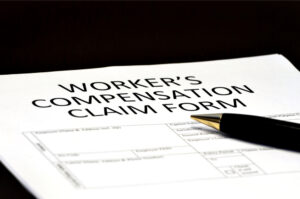 Workers’ compensation is insurance that provides medical benefits and wage replacements to injured workers. If your employer denies your claim to these benefits, you can sue them for negligence with help from Cook County workers’ compensation lawyers. Since Congress allows each state to determine benefits, each has distinct workers’ compensation laws and claim requirements.
Workers’ compensation is insurance that provides medical benefits and wage replacements to injured workers. If your employer denies your claim to these benefits, you can sue them for negligence with help from Cook County workers’ compensation lawyers. Since Congress allows each state to determine benefits, each has distinct workers’ compensation laws and claim requirements.
How Different States Offer Workers’ Compensation
In some states, businesses provide workers’ comp through a state fund, while others can also use self-insurance options. Then some allow employers to choose between private insurance, state funds, and self-insurance.
The minimum benefits that injured employees are eligible for can differ from one state to another. Businesses have options via various rates depending on their industry classification and other factors.
Determining the exact benefits can be challenging if you work in different states for the same employer. The differences make compliances a moving target, preventing you from getting the compensation or benefits you deserve.
How Geographical Issues Affect Workers’ Compensation
Since Congress gives states autonomy to determine their benefits with no federal minimums, workers who live across state lines from one another face different outcomes, even if they sustain the same injuries. Consider the case of Jeremy Lewis and Josh Potter, for instance.
Both men lived less than 80 miles from one another, and both lost a portion of their left arm in a machinery accident. However, while Lewis received $45,000 in workers’ compensation for his injuries, Potter fared much better with $740,000 in benefits.
The massive difference in benefits came down to the state they lived in. Lewis lived and worked in Alabama, which is notorious for criminally low workers’ comp benefits. On the other hand, Potter amassed a fortune in benefits because he lived in Georgia, which is quite generous in comparison.
The sharp disparity may seem unfair, but it also highlights the discriminatory practices that govern workers’ compensation in the country. Each state has a schedule of benefits that divide the human body like a prize beef chart. Every part has its own compensation rate, and workers are awarded only part of their wages up to the maximum allowed by their state for a specific number of weeks. That is why the final amounts can differ significantly between states.
Contact Our Cook County Workers’ Compensation Lawyers Today!
If your employer denied you workers’ compensation in Illinois after you were injured at work, contact experienced Cook County workers’ compensation lawyers. The attorneys at The Law Offices of Robert T. Edens have two decades of experience representing hardworking individuals like you who want to take care of their families and ensure a solid future.
We have recovered millions of dollars in compensation for our clients. So if you or someone you know has been injured, contact our experienced team for a consultation today! If you wait for your employer to do the right thing, you will miss out on claims that can replace your wages as you heal at home or in the hospital. Do you think you can recover after that loss? Don’t pay out of pocket for the compensation you deserve from your employer.

 All businesses operating in Illinois with employees are required to sign up for worker’s compensation insurance. This also includes businesses that only hire part-time employees. According to Illinois law, employers have to purchase a policy from an insurance company or get permission to self-insure.
All businesses operating in Illinois with employees are required to sign up for worker’s compensation insurance. This also includes businesses that only hire part-time employees. According to Illinois law, employers have to purchase a policy from an insurance company or get permission to self-insure.
 Most people who get injured at their workplace don’t know that their ability to receive benefits is bound by the Illinois statute of limitations for workers’ compensation claims. The statute of limitations is basically a deadline before which a claim needs to be filed. If the injured party fails to file a claim before the deadline mentioned in the statute, then they will not be entitled to receive the benefits.
Most people who get injured at their workplace don’t know that their ability to receive benefits is bound by the Illinois statute of limitations for workers’ compensation claims. The statute of limitations is basically a deadline before which a claim needs to be filed. If the injured party fails to file a claim before the deadline mentioned in the statute, then they will not be entitled to receive the benefits. When it comes to workplace compensation injuries, most refer to specific body parts where the injured employee is eligible to receive a statutorily scheduled monetary compensation. The
When it comes to workplace compensation injuries, most refer to specific body parts where the injured employee is eligible to receive a statutorily scheduled monetary compensation. The 